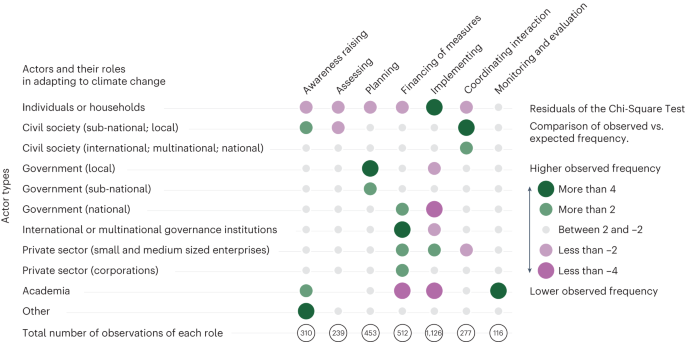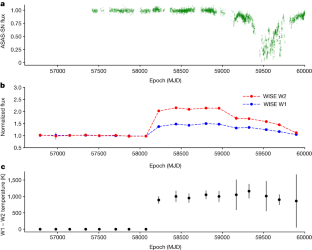2023-10-12 ミュンヘン大学(LMU)
◆この研究は、LMUとハンブルク大学の科学者からなる国際チームによって実施され、気候変動適応に関する1,400以上の科学研究を評価しました。結果から、気候変動への適応における役割と責任の分配に課題があり、特に気候変動の影響に対処するために社会、インフラ、リスク管理を根本的に変革する適応策が不足していることが明らかになりました。また、国家および非国家の行動主体間で包括的な協力が不足していることが指摘されています。
◆研究者は、包括的で公平で将来志向的な適応策が成功するために、形式的な組織と他の行動主体をすべてのレベルで統合する必要があると強調しています。しかし、現状では気候変動への適応策が孤立し、協調が不足しているという課題が浮き彫りになっており、包括的な適応が緊急で重要であることを示しています。
<関連情報>
- https://www.lmu.de/en/newsroom/news-overview/news/adaptation-to-climate-change-impacts-action-too-uncoordinated-worldwide.html
- https://www.nature.com/articles/s41558-023-01824-z
気候変動適応におけるアクターとその役割の世界的評価 A global assessment of actors and their roles in climate change adaptation
Jan Petzold,Tom Hawxwell,Kerstin Jantke,Eduardo Gonçalves Gresse,Charlotta Mirbach,Idowu Ajibade,Suruchi Bhadwal,Kathryn Bowen,Alexandra Paige Fischer,Elphin Tom Joe,Christine J. Kirchhoff,Katharine J. Mach,Diana Reckien,Alcade C. Segnon,Chandni Singh,Nicola Ulibarri,Donovan Campbell,Emilie Cremin,Leonie Färber,Greeshma Hegde,Jihye Jeong,Abraham Marshall Nunbogu,Himansu Kesari Pradhan,Lea S. Schröder,Mohammad Aminur Rahman Shah,Pauline Reese,Ferdous Sultana,Carlos Tello,Jiren Xu,The Global Adaptation Mapping Initiative Team & Matthias Garschagen
Nature Climate Change Published;12 October 2023
DOI;https://doi.org/10.1038/s41558-023-01824-z

Abstract
An assessment of the global progress in climate change adaptation is urgently needed. Despite a rising awareness that adaptation should involve diverse societal actors and a shared sense of responsibility, little is known about the types of actors, such as state and non-state, and their roles in different types of adaptation responses as well as in different regions. Based on a large n-structured analysis of case studies, we show that, although individuals or households are the most prominent actors implementing adaptation, they are the least involved in institutional responses, particularly in the global south. Governments are most often involved in planning and civil society in coordinating responses. Adaptation of individuals or households is documented especially in rural areas, and governments in urban areas. Overall, understanding of institutional, multi-actor and transformational adaptation is still limited. These findings contribute to debates around ‘social contracts’ for adaptation, that is, an agreement on the distribution of roles and responsibilities, and inform future adaptation governance.



